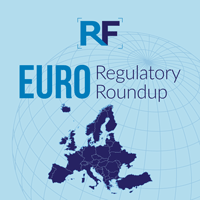Euro Roundup: EMA reflects on a decade of collaboration with HCPs, recommends Janssen COVID booster
 Biologics/ biosimilars/ vaccinesEuropePharmaceuticalsRegulatory Intelligence/Policy
Biologics/ biosimilars/ vaccinesEuropePharmaceuticalsRegulatory Intelligence/Policy Biologics/ biosimilars/ vaccinesEuropePharmaceuticalsRegulatory Intelligence/Policy
Biologics/ biosimilars/ vaccinesEuropePharmaceuticalsRegulatory Intelligence/Policy